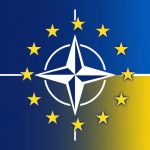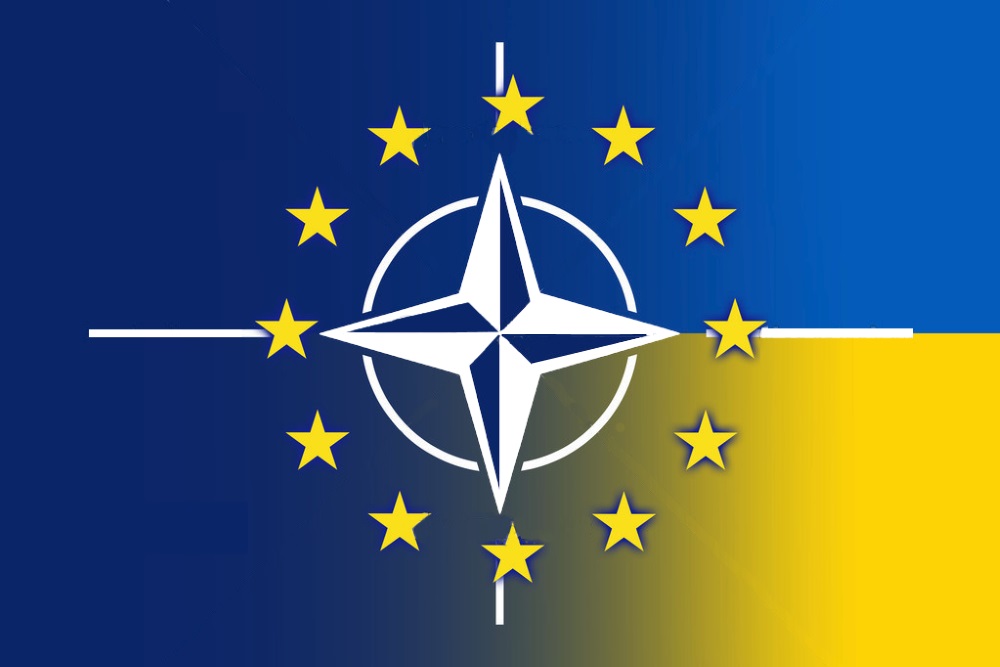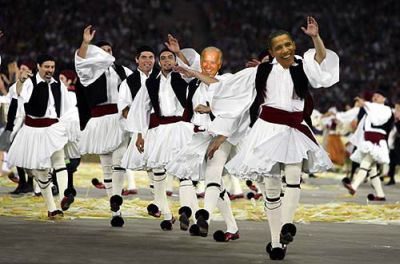
Deprecated: trim(): Passing null to parameter #1 ($string) of type string is deprecated in /home/aoiusa/public_html/wp-content/plugins/sexybookmarks/public.php on line 388
Deprecated: trim(): Passing null to parameter #1 ($string) of type string is deprecated in /home/aoiusa/public_html/wp-content/plugins/sexybookmarks/public.php on line 394
Deprecated: trim(): Passing null to parameter #1 ($string) of type string is deprecated in /home/aoiusa/public_html/wp-content/plugins/sexybookmarks/public.php on line 400
Editor’s note: This previously unpublished essay was written in 2012 and criticizes George Weigel for his tendency to interpret any American conflict with Russia through a neo-conservative, cold war lens and characterize it as a religious war between the Catholic West and Orthodox East. It is published for the first time here.
By Rev. Patrick Irish
I have read Mr. Weigel question his analysis of Ukraine’s change of regime in the light of Ms. Tymoshenko’s recent incarceration, and his theory of Soviet resurrection via Putin and Patriarch Kiril. There is, in his suppositions, a profound disconnect between daily Russian reality and his fears that make his message really about things other than the immediate problems of current Ukrainian politics and the makeup of its present nationalism. He makes the wrong argument to support his contention that the Ukrainian Greek Catholic Church (also known, by the creators of that union, as The Unia) is the best proof of a politically vibrant-for-good Ukrainian nationalism. His article is actually very light on the strength of the UGCC in the political life of the Ukraine. He seems content with making a case that historically, the politically close (some would go as far as to say supine) posture of the Moscow Patriarchate of the Orthodox Church towards the government of the Russian Federation could be the deplorable agent in Putin’s projected restoration of the Soviet Union by the destruction of “democracy” in the Ukraine, and the loss of its sovereignty. This disjunction sorely begs for a correction.
I do not do much Ukraine-watching; I find parsing the various religious and political doings of Moscow enough to keep me busy. Yet it is necessary for the American reader to understand that, for the Russian, whether he be an Orthodox Christian or a member of some other religion or still a member of the Communist Party; the Ukraine is not some “other.” Culturally speaking, a separatist Ukrainian “nationalism,” to a Muscovite Russian is a non-sequitor. Such a separation between Russian and Ukrainian cultures, stereotypically, for the Muscovite Russian is an unthinkable, because many of the common cultural understandings between the Ukrainians and Muscovites came to Moscow on the saddles of George Longhands (Iuri Dolgoruki) and his cousins, and on the soles of the Orthodox monks and peasants that followed into those northeastern territories after the 14th Century AD.
The Ukrainian cultural response is different, because it is one of opposition, primarily against the Poles, Austrians, Hungarians, and later, against Muscovy. They do see themselves as other than Muscovites, and resent being considered other-than- Russian Russians (Ukrainians, Little Russians, Galicians, White Russians). The 19th century calls by Shevchenko for the founding of a free Ukraine so that the Ukrainian people would show themselves worthy to be self-ruled was a secular reaction to Ruthenians, Ukrainians, Little Russians, White Russians, all being ruled by the “Great Russian Tsar” who was replacing their language with Great Russian speech. This ongoing Russification (from the early 18th century, until 1917) thereby threatened them with the loss of their literature and culture as Southern Russians, the remnants of the original Rus’. The region of the Ukraine was never its own cohesive state, ever. The 16th-17th centuries Hetmanate was known more for its continuous civil strife and lawlessness culminating in a 40 year period known as the Ruin, before Poland and Muscovy concluded the treaty of Andrusovo in 1667, and the areas of the Ukraine not swallowed by Poland became a part of Muscovy. The bitter cultural ambivalence of Ukrainians towards Moscow stems from this time, it is not a product of the recent Soviet past.
The political problems Mr. Weigel insinuates that might come at the hands of the Russian Orthodox Patriarch also do not have a genesis in either the Soviet period or the earlier times of the Unia of Brest or the 1589 foundation of the Moscow patriarchate. Yes, the Russian Orthodox Church was an arm of the State after Peter I (1721) all the way through December 26, 1991. But that is not enough on which to hang the thesis Mr. Weigel insinuates the Russian Orthodox Church could or would do for V. V. Putin. The reasons for disregarding this particular concern will be addressed below.
Mr. Weigel’s claim that a strong (or even extant) UGCC is the “canary in the mine” for democracy has no strong historical basis. True, Ukrainian Byzantine Catholics did suffer horribly, along with Roman Rite Catholics and the Orthodox throughout the Soviet period. Yes, they were forcibly “repatriated” under Stalin to the Russian Orthodox Church when Stalin relaxed persecution against the Orthodox Church in the wake of June 1941. But the Ukrainian population is still quite riven with several denominational splits: The UGCC is currently discussing a present schism even as I write this missive (UAOCC); the Ukrainian Orthodox in the Ukraine are divided into three groups. Taken individually, none of these Orthodox groups really seems to have a lot of political clout in Kyiv. Further, Mr. Weigel’s claim might have traction if he was talking to members of the UGCC in diaspora, but in my life experience, his claim also doesn’t hold well, there, either.
Both Ukrainian Orthodox and Catholics (both Byzantine and Roman Rite) in diaspora were renowned for their “nationalism.” So much so that the Ukrainian Orthodox in diaspora, for all but a few scattered parishes, finally buried their internecine grudges and merged as an exarchate under Constantinople (by 1995). The irony is that the diaspora Ukrainians nationalistically defined their respective confessional religious identities, and did not paint their nationalism as a monolithic Orthodox or Uniate or even Latin Rite Catholic or Protestant culture…their identity was as “Ukrainians” first. Religious affiliation took a second seat to the nationality (defined as the ethnicity) of a local group of people in a larger country; much like the common American understanding of “nationality.” Because of the foregoing, I recommend a more balanced recollection of the role that religious affiliation played in the Ukraine during the Orange Revolution; and as it comes from Radio Free Europe, I believe it an acceptable citation and can be found here.
I must therefore ask: What is Mr. Weigel really concerned with, if it is not Ukrainian politics played out in the Ukraine, by Ukrainians? If Mr. Weigel believes that the Russian Orthodox Church is the clerical-advance-water-carrier of V.V. Putin, a confederate of Putin’s for the sake of resurrecting the Godless Soviet Union, then he should say so, and provide direct sources.
Mr. Weigel is on good enough ground to historically sketch out the supine political posture of the Orthodox Patriarchate of Moscow to whomever is in power in Moscow. Whether or not such a relationship will so remain, vis-a vis Putin’s return to power, is questionable. If Mr. Weigel desires to paint the Orthodox Patriarch Kiril with anti-liberal colors, he might do well to remember, that until 1919, when Benedict XV lifted the ban on Catholics participating in political parties, secular democracies were considered anti-Christian cabals. Further, Mr. Weigel’s consideration of a failed ecumenical relationship between Eastern and Western Christianity is a non-issue, any way: from the Orthodox perspective, despite the mutual lifting of Anathemas in the 1960’s, the Papacy is still in schism, the Papacy is still the offending party against the catholicity of the Church.
The Vatican (acting as the Papacy) is presently forced to come to grips with the loss of its once-extensive empire and actually attend to the spiritual needs of the territory it believes is its purview. Unhappily for Pope Benedict XVI, the Vatican State (acting as the Papacy) recognizes, and has made overtures to the largest Christian denomination in all of Europe to help re-Christianize (if possible) the spiritually suffocating, atheistically ethical landscape of post-Great War (WWI) Europe. Because of its degraded political and cultural position in Europe, the Vatican State (as Papacy) will still make efforts to address the problem of its schism from the Orthodox Church, attempting to talk its way around the still extant, still insuperable obstacles to intercommunion with Orthodoxy, all with the same lack of success.
I recommend to Mr. Weigel that after he reads Zoe Knox’s several hand-wringing and well-researched studies upon the illiberality of the Russian Orthodox Church in the post-Soviet era, he also keeps in mind his own, previously-written, historical discussions about how Europe (from Spain to Belarus, from Norway to the Dodecanses) came upon their several current political and cultural states of affairs. The Vatican State, as a State, and acting as the Papacy, is powerless to aid in any return of Christianity to European cultural consciousness. The process of secularization that began with the Protestant reformation has been bolstered by so many political and moral missteps on the part of the Vatican State that it really has no say in what political policy decisions are made elsewhere in Europe.
I sincerely hope that Mr. Weigel would review his use of the well-worn political warnings against a “’Greater Russia’ threatening Europe” and see where these have been heard before, and what was the end of resorting to such propaganda. It does no good to recycle the 17th-18th century libel “The Will of Peter the Great” which states that Russia will seek to get a navy big enough to threaten Europe, invade England, etc….” This kind of Roman shield-beating, incessant Catonian “Praeterea censeo Carthaginem esse delendam” against Russia is truly unnecessary. The Russian Federation has plenty of problems….all of which will make any military or other “ops” misadventure in Kyiv or Berlin more than unlikely. For starters, Russia’s infrastructure problems are massive, exacerbated by the lack of proper maintenance on what infrastructure it does have. This situation makes for very bad distribution of core staple goods and farm produce. Further, the lack of information on the production of petroleum and natural gas (in both the RF and in certain other central Asian republics), coupled with the deplorable corruption that sucks all real profit out of these enterprises, denies consistent sales and tax revenues to the state. All these things are undergirded by a pandemic of crime that seems to run unchecked.
I think V.V. Putin, should he come to power (again, directly), will have his hands full.
There are more examples, but, due to those facts enumerated in the foregoing paragraphs, I find Mr. Weigel’s trotting out the “partition of Poland” metaphor by his envisioning a re-created Halych a-la “Congress Poland ” (c. 1815) is over-the-top and not at all helpful for his readers, nor his possible defenders. The Moscow Patriarchate has no need to play any part in this “possibility” because it would gain nothing it does not already have. The statement that Patriarch Kiril might accede to aiding such a partition is ludicrous on its face. Putin could do his own seizures, had he a mind to do so.* However, given Russia’s internal problems it is an expense I doubt he would carry, given the other things he might have to face should he return to power next year. Also, there is the possibility that he might not, after all, return to power: God alone disposes the affairs of men despite their best plans.
Mr. Weigel needs to know that Russian tanks aren’t going to be coming to Kyiv any time soon, only Russian petroleum and natural gas, bound for Germany, France, and anywhere else in Europe which doesn’t want to freeze in winter. The thing that Mr. Weigel does not discuss is the middleman role that the Ukraine had attempted to play for two winters past, ending disastrously for itself and political estrangement from one of the few solvent Continental members of the EU (Germany). I have no way of proving this, as there is no handy way of obtaining citable sources, yet I doubt that home-grown kleptocracy in Ukraine (regardless of the political leanings of the individual candidate) has been reversed to any degree greater than in Belarus or Russia itself.
I only hope that whoever runs Ukraine has learned how to pay Ukraine’s gas bills on time.
I hope that Mr. Weigel carefully thinks just who is indeed the enemy of “western” values, and whether or not Russia, in the person of Putin or Patriarch Kiril can bring to fruition the nightmare he envisions. I recommend Mr. Weigel read Nikolai Ivanovich Kostomarov’s seminal article on the Two Russian Nationalities (1863). I also recommend he read The Lay of Igor’s Host, and the Povest’ (Tales of Bygone Days) as well. Kostomarov’s article clearly draws from these sources the cultural stereotypes of Ukrainians contrasted against that of Muscovites quite well. Kostomarov notes the long-established, culturally prized anarchy and mendacity of any number of Ukrainians seeking power in the Ukraine, historically; his work also pointedly discussed the democratic sense of Ukrainians both in its positive and negative manifestations.
The Santayana dictum holds, always: those who do not learn from their history are doomed to repeat it. Ukraine is no different than any other nation or state. Ukrainians in Ukraine today continue to create enough Rurikid-reminiscent, “anti-Ukrainian” anarchy such that they will always have difficulties effecting the necessary cohesion required of a functioning state, let alone as a people maintaining a politically and culturally healthy self-possession. Whether or not they would be capable of holding themselves together in an American-style, liberal democratic arrangement remains to be seen as the Ukraine has, (as much as Muscovy) from the times of the Cossack hetmanate and from their ancestral Rurikid overlords, the tradition of the “Strong Man:” Khlmenitsky, Mazepa, Doroshenko, Rurik, Igor, Svyatoslav, Yaroslav Premudry, St. Vladimir (Vasili), to name a few, (and some women among them like St. Olga, St. Vladimir’s grandmother). All of the above leaders had to contend with political infighting the like of which makes Ms. Tymoshenko’s present incarceration and fines a summer picnic. If Ukrainians feel themselves a separate people and worthy to hold their own state together for the good of themselves as its citizenry, then Ukraine has to figure out its own soul, and search for its own path, and protect that path of economic, political and cultural development.
Mr. Weigel’s sounding an alarm on a non-existent renaissance of the Soviet Union is not an adequate or helpful analysis of Ukraine’s problem for Ukraine or her citizens, nor does it really examine the situation carefully for his American readers. The question: “Does Russia desire to annex the Ukraine?” is an important question. The baseless insinuations Mr. Weigel makes in this article, as to the mechanism such an underhanded activity could take, will merely inflame the passions of those who might be interested in working for the greater good of all of Europe, a Europe that Russia has always believed itself to be a part thereof. Such intemperate and short-termed speculation (and the insinuating manner in which Mr. Weigel’s article delivers his anti-Russian Orthodox “considerations”) might jeopardize whatever ecumenical rapprochement the Russian Orthodox Church could give to the Papacy that could help the Vatican State (acting as the Papacy) return Europe to some semblance of its formerly Christian culture.
Mr. Weigel should know that one never, ever cuts off the nose of another, and then invite that injured party to smell the rose he proffers. I have read some of Mr. Weigel’s other works, and I had yet to read any overtly anti-Orthodox tracts until I was asked to read this one on current events in Ukraine. I actually like how Mr. Weigel writes. I only wish he would write as carefully about the Russian Orthodox Church’s role in contemporary Russian political life as he has on his other, pro-papacy, pro Vatican State apologia.
* Crimea and Sebastopol were annexed in March of 2014; Putin, and the RF Army in mufti, not the Russian the Orthodox Church were the active agents for this possibly regrettable ‘repatriation’ of Novorossia.

Fr. Partick Irish is an Orthodox priest who lives and works in California.

